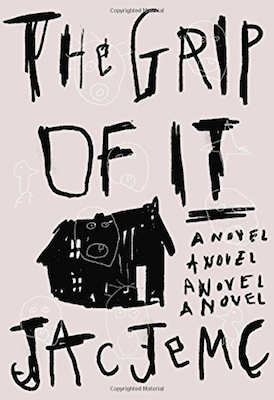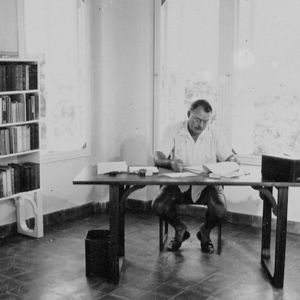
I tell Julie I’ve made a friend at work. I keep the details vague. She tells me that Connie just broke up with her boyfriend. She lives on the other side of town, near the high school. Julie’s excited to spend more time with her again. The office is fine—nothing special. She can tell the operations manager is going to drive her bananas. When she got home, she says, she took a walk through the woods. She describes a mushroom she saw to me, and I tell her I’ll look it up. I sense a secret in the misses of the conversation. Something hides beneath her skin. Like a mouse running under a fitted sheet. She keeps shifting in her chair and itching.
“Are you okay? You’re scratching.”
“It must be the dust in here.” She eats another bite. I watch her fingernails approach her arm again. She pulls them back. She shakes it off.
I want to ask if she saw the children in the woods. I want to lay out what the bartender told me. We play chicken. We wait for the other to give in and listen.
Julie breaks. “Also . . . ,” she says, stalling, “I found a grave.” She bites her lip, aware of how paranoid she must sound. “In the yard. It’s unmarked.”
I don’t know what I was expecting, but this wasn’t it. Maybe this will serve up an answer for us. I cock my hand and I tuck my lips over my teeth. She stands. She takes my hand. We go out the back door. We traipse across the dew-wet lawn. She points at a plot of stale dirt lined on one side with rocks.
“We don’t know.”
She says, “I do, at least as much as I know anything about this house.”
I furrow my brow. All of a sudden it feels as if we’re halfway down a dark alley with a stranger who seemed friendly enough back at the street. Julie toes the edge of the plot. In that moment I feel all the love I possibly can for her. I see a wet drop land on the dirt below. I raise her chin to me and have to remind myself not to kiss her when her lips blouse themselves out like that. “Hey, this is nothing. We’re having some cold feet, but this is nothing. A patch of dirt.”
She glances to the house next door. She looks for something, but turns back to search my eyes instead. “What did you have to tell me?”
I hesitate. In this moment of pause, the chirp of the locusts in the trees and the buzzing of the birds in search of one last meal before dark crescendo to a crushing maximum. I think of the hum in the house and wonder if it might be nature we hear. Maybe the threat forms when the sound is filtered through brick and glass. Then the warble dies away. I hear no wildlife at all. The sky has turned a gray blue. The sun is gone. I return to the task at hand. I don’t want to upset her even more. I know that I owe it to her to be honest and share my worry, too, though. I tell her about the children in the trees. I tell her how they call to each other. They hunt for a murderer.
Julie acts as if this is less concerning. “That’s just kids playing.” I feel hurt for taking her seriously and being dismissed myself. This is how she copes though. “You’re right,” I say. I’m proud of her for not taking this trouble on. I try to believe. I think of the bartender’s stories and keep them to myself.
*
At work, people are polite when they ask about the house and how unpacking is going and I tell myself they don’t resent that I was hired as VP of product even though they’ve all been here longer and know the business better than I do. I tell stories about finding more secret places in the house and about how floorboards shift and we find the blank treasure that is more storage and about how the humidity swells the windows in their frames and how the glass makes the forest waiting behind the house seem wet and close and I say we think our neighbor might be spying on us and they laugh about what they think is my paranoia. I say, “I’ll have all of you over soon so you can see for yourself” and “Fine, don’t believe me,” and women and men alike huddle at the entrance to my cube to make easy jokes, until the day Connie asks what’s on my neck, and I don’t know the answer, so she comes over and smoothes the wispy hairs up and tugs my collar down and says, “This bruise. What happened?”
The two of us rush to the bathroom down the hall and I turn my back to the mirror, but also crane my neck to try to see what she’s talking about, and when I yank at my collar myself, I realize that the area is tender, but the angle is all wrong, and I can’t see. Connie runs to get the compact from her purse, and it takes me a few tries to get the orientation of reflections right, but there it is, a bruise, large and oddly shaped, and we can’t see the bottom of it so we shut the bathroom door and lock it and, because Connie is such an old friend whom I used to change with in dance class, and it doesn’t matter, I take my shirt off and the bruise is even larger than we thought, and it runs almost down to my waist. Connie asks what happened and I say, “I don’t know,” and she gives me that stern look that says both You can tell me and For real? We’re going to fall into this cliché?
I say, “Really, Connie. I’m fucking freaked-out right now,” and a million things flash through my mind, but mostly it’s those books I read as a preteen: 6 Months to Live, I Want to Live, Too Young to Die. “Cancer,” I say out loud. “It’s some sort of blood cancer.”
Connie immediately sobers up. “Come on, Julie. Let’s not be dramatic,” and when I look at her with real fear in my eyes, she pulls me to her and she’s so bony I don’t expect her hug to be as comforting as it is, but I can tell she’s watching my back in the mirror, and trying not to grab at the bruise, because she’d seen me flinch when I pulled my shirt off. “Did you get wasted and fall down again?” she asks, smiling into my hair, knowing I’ve pulled myself together since college, and I can’t help but laugh, because even if Connie is not my best friend, it turns out she’s exactly whom I want in this bathroom with me. She’s all I’ve got in this tiny new town and she’s still hugging me, but I’m trying to break free to put my shirt back on and she won’t let go and it’s some kind of joke I don’t get, and that’s why I love her, because she can make me laugh in a nonsense way, and she says, in a spooky voice, “I think it’s growing.”
I laugh and give her one final push. “So comforting, Con.” She squints her eyes at my reflection, as if she might actually be noticing something, but I pull my shirt down and her eyes snap back to my real eyes, and she says, “Yeah, I’m kidding. Couldn’t be.”
__________________________________
From The Grip Of It. Used with permission of FSG Originals. Copyright © 2017 by Jac Jemc.

